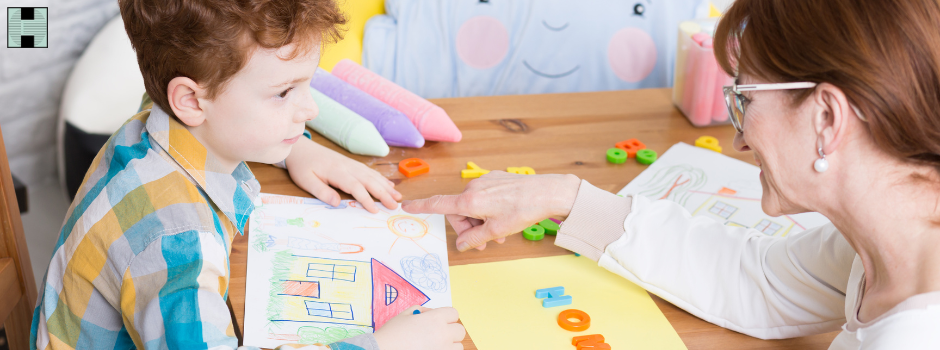How to Become a BCBA in NY
Are you interested in a career in Applied Behavior Analysis? Consider looking into how to become a BCBA in NY! Becoming a Board-Certified Behavior Analyst (BCBA) in New York involves a structured path of education, experience, and certification. A BCBA is a professional who uses Applied Behavior Analysis (ABA) to assess and help individuals with improving socially significant behaviors. Below is a comprehensive guide on how to become a BCBA in NY.
What is a Board Certified Behavior Analyst?
A Board Certified Behavior Analyst or BCBA, is a certified professional who works with individuals that need behavioral support. BCBA’s use Applied Behavior Analysis techniques with their patients to treat the behavioral issues they’re experiencing. Board Certified Behavior Analysts assess, analyze, and develop therapy plans for behavior-related challenges. Behavioral Analysts are qualified to work with individuals that are on the spectrum or those with other developmental disabilities.
BCBAs have several responsibilities and duties depending on the workplace. Some of responsibilities include:
- Conduct curricular assessments as assigned
- Use principals of applied behavior analysis in practice settings to treat patients affected with a range of conditions that are negatively impacting their behavior
- Develop behavior intervention plans for clients in a timely and efficient manner
- Supervise ABA therapists and Registered Behavior Technicians (RBT) as they perform applied behavior services
- Maintain consumer records and completes data and progress reports
- Participate in coordinating IEP objectives and learning goals
- Educate families on the implementation of behavior support plans and strategies
- Review skill and behaviors data as scheduled
- Participate in initial consumer evaluations
How to Become a BCBA in NY
Understand the Role and Requirements
It’s important to fully understand the role and requirements of a BCBA before embarking on this journey. BCBAs create and implement behavior modification programs based off of ABA principles. They work with individuals of various needs, including those with autism spectrum disorders, developmental disabilities, and other behavioral issues.
Obtain the Education Requirements
In order to obtain the certification, you need to qualify and meet the certification exam requirements. To qualify, you must have a masters degree in behavior analysis, psychology, education, or a related field. The degree must also be from an accredited school and meet the coursework requirements set by the Behavior Analyst Certification Board (BACB).
The BACB outlines specific coursework requirements for aspiring BCBAs. Your master’s program should include courses in the following areas:
- Concepts & principles of behavior analysis
- Behavior assessment
- Behavior-change procedures
- Ethics and professional conduct
- Research methods and design
Ensure that the program you choose is accredited by the Association for Behavior Analysis International (ABAI) or that the courses in the program are verified for meeting the BACB standards.
Gain Experience
After completing your coursework, you must accumulate supervised experience. The BACB requires:
- 1500 hours of supervised experience, typically you will gain this experience through your masters program
- 2000 hours of supervised experience if you have completed your coursework independently of a degree program.
Apply for the BCBA Examination
Once you’ve completed the required education, coursework, and supervised experience, the next step is to apply for the BCBA certification exam. The application process involves submitting proof of education and experience. You will need to provide an official transcript from your program and verification of your supervised experience. There will also be an application fee to submit your application.
Pass the BCBA Examination
The BCBA exam is a computer-based test that assesses your knowledge and competency in behavior analysis. The BCBA exam includes questions that consist of various topics such as behavioral principles and concepts, assessment and intervention, and ethical considerations. Set yourself up for success by preparing to take the exam by studying the BACB’s task list and taking test exams.
Receive Certification
After passing the exam, you will receive the BCBA certification from the BACB. This certification is recognized nationally and indicates your proficiency in behavior analysis.
Maintain Certification
BCBAs must maintain their certification through ongoing professional development and adherence to ethical guidelines. This involves completing 32 hours of continuing education every two years including 4 hours of ethics and renewal of the application every two years.
State Licensure
New York requires licensure in addition to a BCBA certification in order to practice as a behavior analyst. The New York State Office of Professions handles licensing, and the process involves:
- Submitting an application for licensure
- Paying the licensing fee
- Meeting any additional state-specific requirements
Conclusion
By following these steps, you will be well on your way to becoming a BCBA in New York. It’s a challenging but rewarding career path that offers the opportunity to make a significant impact on individuals’ lives through the application of behavior analysis principles. If you’re looking for a BCBA job in NY, submit your resume or take a look at our current hot jobs!

